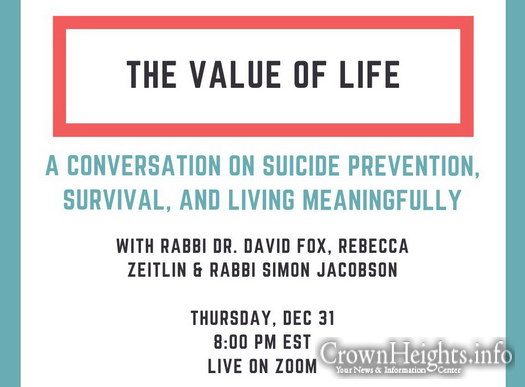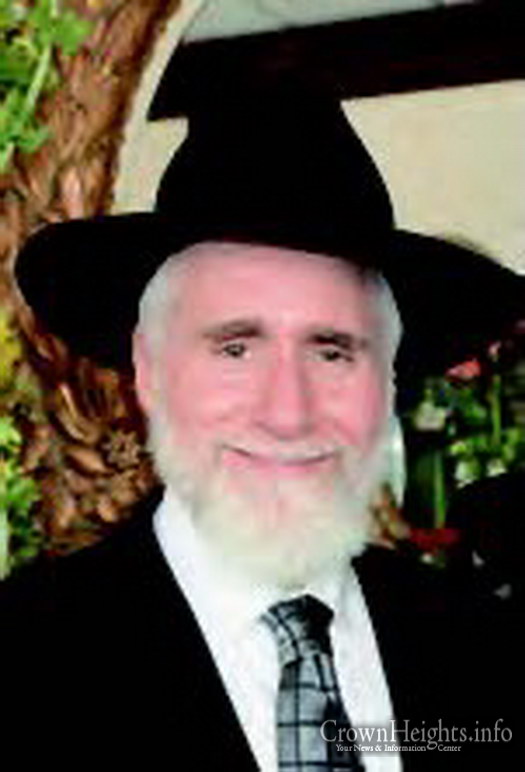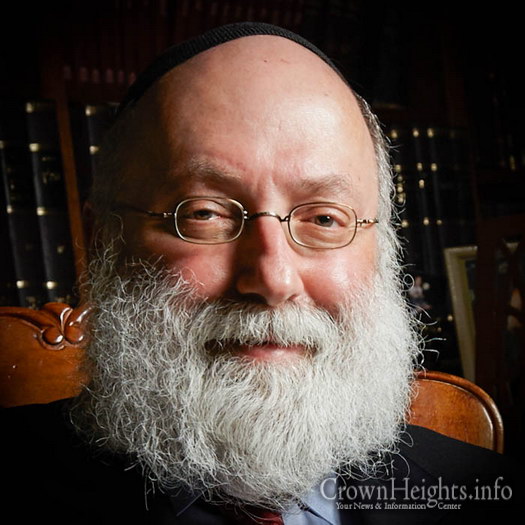
LIVE NOW: A Conversation about Suicide – Live Virtual Event
It’s one of the most overlooked and under-addressed topics in our society, yet probably one of the most important today. We shy away from it not out of callousness, but out of discomfort and fear. And ignorance- many of us care deeply, but we don’t know what we’re up against.
The topic is, of course, the painful reality of suicide and the mental, neurological and physiological conditions that lead to it. Suicide is now a leading cause of death in the United States, particularly among young people (teens and twenties) and older men (50+).
When physical illnesses come to the fore, society is quick to respond. If a neighbor or relative is r”l diagnosed with a serious physical illness, we rush to support them, arranging meals, childcare, and everything they might need to ensure that they receive the best treatment possible. It is widely accepted that one suffering from diabetes, cancer or a heart condition must follow doctors’ orders and take prescribed medications. Why is it so hard to apply the same thinking when dealing with mental illnesses and neurological conditions?
It’s hard because it is surrounded by stigma.
Because it is so frightening, and we don’t know what to do.
Because sitting with another’s pain is so uncomfortable and, well- painful.
Because we’ve been led to believe that we’re not qualified to act, and if we try to help we’ll make it worse. (This is true in many areas, such as playing therapist. But each of us is capable of giving love and supporting treatment.)
It’s hard because for centuries we’ve thought that if we ignore the problem, it will go away.
It won’t.
Suicide is a human behavior that terrifies most people. It is incorrectly viewed as a character or moral flaw- the act of a selfish person. Those struggling with suicidal tendencies and their relatives internalize tremendous guilt and shame, and respond by doing everything in their power to hide it.
In reality, the suicidal tendency is a medical problem- one that is almost always associated with common and treatable mental illnesses such as depression, anxiety, bipolar and substance abuse disorders.
It is estimated that more than 90 percent of those who die by suicide have a diagnosable mental disorder. A diagnosable mental disorder that could have been treated.
The good news is, when it comes to fighting this fight, each one of us has a lot of power.
When we talk more openly about suicide, we help people see it as the treatable medical menace that it is. When we normalize the treatment of mental illnesses, we help those who suffer from them overcome the guilt and shame that prevents them from seeking help. And each of us can learn how to identify someone who is at risk, and how to provide them with resources and support.
More so, suicide is often the result of feelings of intense isolation. The more people that are involved in the life of someone who may be suicidal, the more meaningful connections they have with other people, the less isolated they will feel.
If you’re a parent, teacher, community leader, sibling, or neighbor, there is someone in your life who needs help. By learning to recognize the warning signs and how to respond, you can make life bearable for someone you care about.
Luckily, Neshamos is confronting this challenge head-on with a host of programs and initiatives aimed at raising awareness, providing help, and creating emotionally safe and responsive communities.
On Thursday, December 31, Tes Zayin Shvat at 8PM – 9:30PM Neshamos is hosting a conversation on suicide featuring three prominent presenters, exploring three aspects of the topic.
Rabbi Dr. David Fox of Chai Lifeline will discuss the different thoughts and feelings we may be processing at this time. Dr. Fox will also provide helpful insight into the roles of parents and community members in relation to suicide and suicide prevention.
Rebecca Zeitlin, Assistant Program Director at Didi Hirsch Mental Health Services,
will talk about recognizing signs, who to contact in a time of crisis.
Rabbi Simon Jacobson will discuss the value of life and emphasize the importance of our mission here on this world.
“As adults, as community members, as shluchim, it is our job to be there for people when they need help.”
Join the conversation. During your lifetime you are far more likely to encounter someone who needs suicide intervention than CPR. Make sure you have the knowledge and tools you need to help.
Questions can be submitted to events@neshamos.org
https://zoom.us/j/94963688217?pwd=MFNRemF2VlBmMkk4cVA4UUppRytOUT09
If you care, please be there.
These suicide prevention workshops have been arranged by Neshamos in conjunction with the Jewish Learning Institute.















